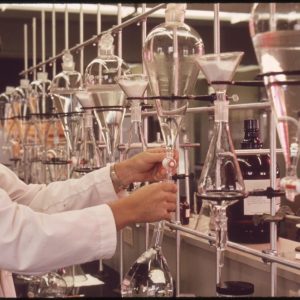
What Does Working as a Biologist Involve?
Biologists looking for a move up the ladder or their first job would do well to consider working with the Food and Drug Administration or perhaps the UK equivalent called the Medicines and Healthcare products Regulatory Agency. The FDA is responsible for protecting public health by ensuring the safety of drugs – for people and animals, biological products, medical devices, food supply, cosmetics, tobacco products and products emitting radiation. Furthermore, it is also involved in processing medical innovations and in the nation’s counter terrorism strategy, by ensuring the security of the food supply and public health threats. They will base their medical reports on the data that is supplied to them by Paid Medical Trials companies such as trials 4 us. There results will help to determine the safety and efficiency of drugs that are trialled.
Working as a biologist within the FDA is certainly a diverse role. Other benefits include alternative work schedules, child care tuition, employee assistance programme, subsidies for commuting, flexible workplaces and voluntary leave.
FDA biologists work in the Washington DC headquarters and other FDA facilities around the USA. The organisation is currently looking to fill 1,300 medical and science positions, with biologists’ duties including evaluating data to determine how safe and effective a medical product is, screening out medical products which could be a hazard to public health, researching the preparation, preservation and safety of bloods and studying the biological effects of food additives or contaminants.
Salary and Qualifications Required
Your salary level is likely to be from GS-9 to 13 at headquarters, and GS-5 to 11 at field level, so it can vary from a basic of just over $28,000 to $96,000, although higher grade levels may also be available. You will need a degree in biological sciences, agriculture, natural resource management, chemistry or related disciplines, plus specialist experience or education for the higher-grades.
How to Find Biologist Positions
Applying directly to companies which appeal to you is one option, or an alternative for clinical staffing solutions is to register with an agency. They can then look at your CV, qualifications and experience to find a place for you, as they may know of openings that you have not found.
As a biologist you will need to keep abreast of any developments in your specialist area or to help with research in this field. It is worth asking prospective employers about any on-going training they provide, whether they will encourage you to undertake research, or if they will help you study for a post-graduate or higher qualification such as a PhD.

Leave a reply